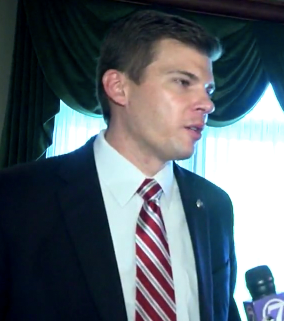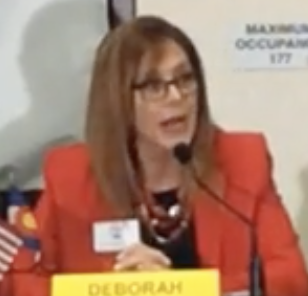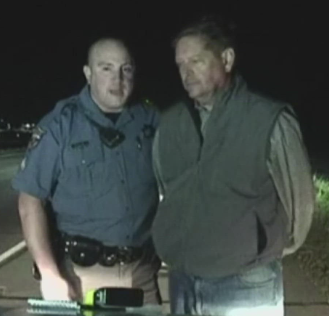 January 29, 2024 01:04 PM UTC
January 29, 2024 01:04 PM UTC

Colorado Republicans never miss an opportunity to argue with each other, which is one of the main reasons that the GOP continues to have so much trouble winning elections in the last decade. This is the time of year in every election cycle when a particular favorite argument pops up for Republicans: The relative merits of the two routes for access to the Primary Election ballot.
Nowhere is this debate more relevant than in CO-04, where as many as a dozen candidates could be hoping to see their names next to a little box ahead of the June 25th Primary Election. There are two options for Republican congressional candidates seeking ballot access: 1) Collect 1,500 valid petition signatures, or 2) Receive at least 30% of the vote at the Republican Congressional District Assembly. As of this morning, six Republican candidates in CO-04 have filed with the Colorado Secretary of State’s (SOS) office to submit petition signatures for ballot access. In the chart below, the first date is when the candidate’s petition language was approved; the second date is when the petition signatures are due to be returned:

Lauren Boebert, Deborah Flora, Richard Holtorf, Trent “MAGA King” Leisy, Mike Lynch, and Peter Yu have already begun the process of collecting signatures for ballot access. That means that the likes of Jerry Sonnenberg and Ted Harvey — for now, at least — are counting on a strong performance at the Republican Congressional Assembly for their ballot access hopes. This has been a significant issue for Republicans in recent election cycles, with many on the far-right arguing that a “real” Republican would only attempt to make the ballot via the caucus/assembly process. For someone like Sonnenberg, who spent 18 years in the state legislature, it’s probably a safe bet to assume that he’ll have widespread support among Republican caucus goers. We’d be less confident if we were Harvey, since he’s been out of sight and out of mind for quite awhile now.
Relying on the caucus/assembly route is also a simple math problem with such a crowded field of candidates. Since you need a minimum of 30% of the vote to qualify for the Primary ballot, only three candidates (at most) can gain ballot access without going the petition route.

Both options come with sizable risks. In 2016, Republican Senate hopeful Jon Keyser essentially destroyed his chances of winning the GOP nomination when Marshall Zelinger (then of Denver7) reported on a significant amount of signature fraud conducted on Keyser’s behalf [note that U.S. Senate campaigns need to collect 1,500 valid signatures for every congressional district in the state, so the requirement is much more difficult than for a congressional campaign]. In 2022, a crowded field of Republican Senate hopefuls overcorrected by relying solely on gaining 30% of the vote at the state GOP assembly. Only Joe O’Dea went the petition route in 2022, so he was the only other candidate left standing after Ron Hanks managed to shut out all of the other Republican hopefuls (including Gino Campana, Eli Bremer, and Deborah Flora) for a place on the June Primary ballot. Because Campana, Bremer, and Flora hadn’t been collecting petitions, their campaigns came to an abrupt end once the votes were tallied at the GOP assembly in Colorado Springs. Flora learned this lesson the hard way and is now going the petition route in her bid for CO-04.

We’ve always maintained that smart campaigns should collect petition signatures regardless of their ballot strategy because it is a good way to connect with voters. But there is an important caveat for those candidates who choose to go the petition route for ballot access: Registered Republican voters can only be counted ONCE in a particular race. For example, retiring CO-04 Rep. Ken Buck could sign a petition for every Republican candidate running to succeed him, but his signature would only be valid for the first campaign to submit its petitions to the Colorado SOS; Buck’s signature wouldn’t count for anyone else. In other words, there is a YUGE incentive for campaigns to get their petitions completed and submitted as soon as possible.
The general rule of thumb in signature collection is that you should plan on getting twice the number of required signatures — to account for voter registration mistakes, incomplete information on a petition, etc. A decent congressional campaign should be able to do this with volunteers, but campaigns may also hire petition signature firms (which charge anywhere from $2-$10 per signature, depending on the competition). This can start to get pricey; if your campaign isn’t one of the first to submit petitions to the SOS, you’re going to want to account for that by collecting even more signatures just in case.
You can’t get elected if you don’t get your name on the ballot. You can’t get your name on the ballot if you don’t collect enough petition signatures or generate 30% of the votes at the GOP Congressional Assembly. The petition collection process is the race before the race; if you go to a grocery store anywhere in the fourth congressional district, you’re about to find out firsthand.
Subscribe to our monthly newsletter to stay in the loop with regular updates!
Comments